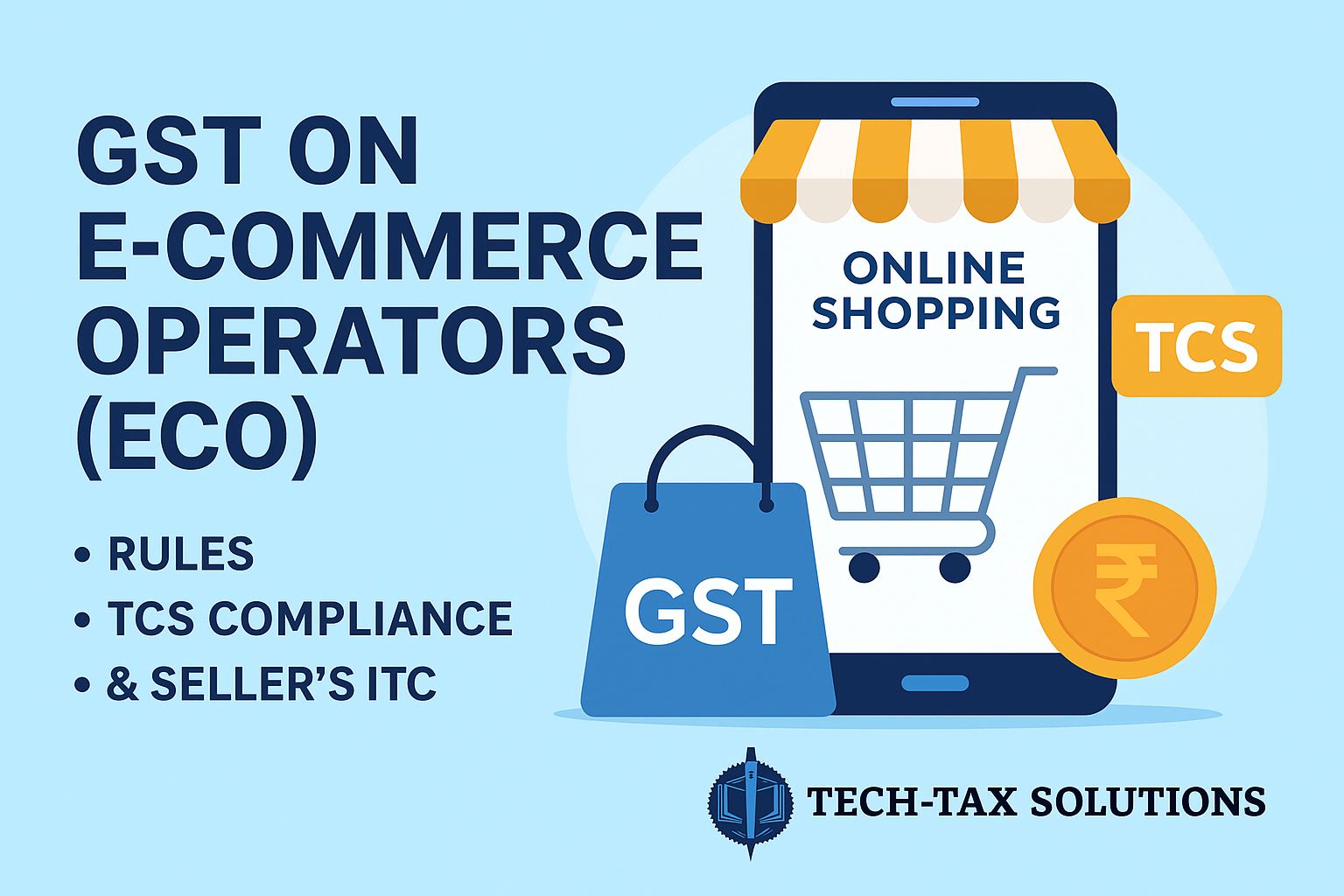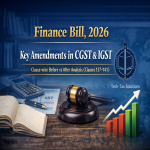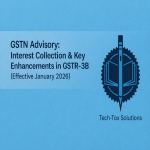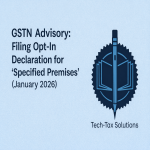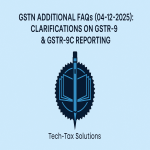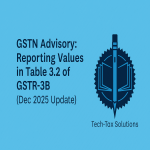🔹 Introduction
E-commerce has grown rapidly in India, with platforms like Amazon, Flipkart, Zomato, Swiggy, Ola, and Uber acting as e-commerce operators (ECOs) under GST. To ensure proper tax collection, GST law places special compliance obligations on ECOs, including Tax Collected at Source (TCS) and return filing requirements.
(Reference: Sec. 52 of CGST Act, Rule 67 of CGST Rules, Notifications & CBIC circulars till 2025)
🔹 Who is an E-Commerce Operator?
As per Sec. 2(45) of CGST Act:
➡️ Any person who owns, operates, or manages a digital/electronic platform for electronic commerce.
Examples: Amazon, Flipkart, Zomato, Swiggy, Uber, Ola, Urban Company, etc.
🔹 Obligations of ECO under GST
✅ 1. TCS Collection
-
ECO must collect TCS @ 1% (0.5% CGST + 0.5% SGST, or 1% IGST) on net value of taxable supplies made through the platform.
-
Net value = Taxable supplies made by suppliers – returns/cancellations.
✅ 2. Return Filing
-
File GSTR-8 by the 10th of the following month.
-
GSTR-8 must contain details of supplies made, returns, and TCS collected.
✅ 3. TCS Certificate
-
ECO must issue TCS certificate to sellers by the 15th of the following month.
-
Sellers can claim this TCS in their GSTR-2B and use it as ITC.
🔹 Seller’s Position
-
TCS deducted by ECO is reflected in seller’s GSTR-2B.
-
Seller can claim it as ITC in GSTR-3B.
-
Sellers must reconcile books with GSTR-8 to ensure correct credit.
🔹 Exemptions from TCS
-
TCS not applicable on exempt supplies.
-
Not applicable on non-GST supplies.
-
Certain notified services may be excluded from TCS compliance.
🔹 Step-by-Step TCS Compliance for ECO
📌 Step 1: ECO records taxable supply made by seller through platform.
📌 Step 2: ECO deducts TCS @ 1% on net taxable value.
📌 Step 3: ECO pays TCS to government by 10th of next month via GSTR-8.
📌 Step 4: ECO issues TCS certificate to seller by 15th.
📌 Step 5: Seller claims TCS credit in GSTR-3B.
🔹 Practical Examples
Example 1: Amazon Seller
A trader sells goods worth ₹10,00,000 via Amazon. TCS = 1% = ₹10,000. Amazon deposits TCS and issues certificate. Seller claims ₹10,000 ITC in GSTR-3B.
Example 2: Zomato Restaurant Partner
A restaurant earns ₹5,00,000 in a month via Zomato. Zomato deducts 1% TCS (₹5,000). Restaurant claims this as ITC.
🔹 Common Mistakes & Consequences
-
Sellers not reconciling TCS credit vs books → ITC mismatch.
-
ECOs filing GSTR-8 late → penalty ₹100 per day (CGST + SGST), max ₹5,000.
-
Not issuing TCS certificates on time → sellers unable to claim ITC.
🔹 Penalties & Legal Provisions
-
Non-collection/payment of TCS: ECO liable under Sec. 122 of CGST Act.
-
Late filing of GSTR-8 → late fee + interest.
-
Wrong reporting → notices under Sec. 74A (from FY 2024-25).
🔹 Best Practices
-
✅ ECOs must automate TCS deduction through their systems.
-
✅ File GSTR-8 by due date and issue certificates timely.
-
✅ Sellers should reconcile GSTR-2B vs TCS certificate monthly.
-
✅ Maintain agreements with sellers covering GST compliance terms.
🔹 FAQs
Q1. Is TCS applicable on exempt or zero-rated supplies?
➡️ No, only on taxable supplies.
Q2. Can sellers claim refund of TCS if excess deducted?
➡️ Yes, through ITC in GSTR-3B.
Q3. Does TCS apply to B2C transactions?
➡️ Yes, ECO collects TCS on all taxable supplies through the platform.
Q4. Is TCS required for inter-state supplies?
➡️ Yes, IGST @ 1% applies.
Q5. Do small sellers (turnover < ₹20 lakh) need to register under GST if selling via ECO?
➡️ Yes, mandatory GST registration if supplying through ECO.
🔹 Conclusion
E-commerce operators play a critical role in GST compliance by collecting and depositing TCS. Sellers must reconcile TCS credits and claim them correctly to avoid ITC mismatches. Timely compliance by both ECOs and sellers ensures smooth tax credit flow.
📌 Need expert help with GST compliance for e-commerce sales, TCS reconciliation, or return filing?
Contact Tech-Tax Solutions – Quality, Trust & Expertise in Ghaziabad, Noida & Delhi.
